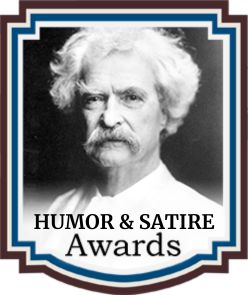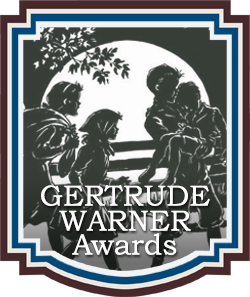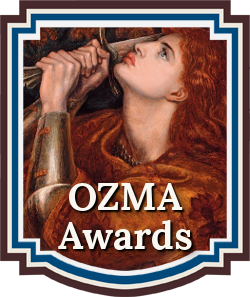|
Listen to or download this article:
|

Just What Makes a Middle-Grade Book Middle-Grade?
While we aren’t actually “Stuck in the Middle” as the Stealers Wheel might say, we can always stand to learn a little more about the genres we write in.

The Stealers Wheel: Decent band? Sure! Middle Grade Authors? Not quite…
As many authors of literature meant for youth know, Middle Grade sits in that small spot between Children’s Literature and Young Adult – quite literally in the middle of these two genres. The target age for this work is 8-12 years old.
We have a couple of key recommendations for creating excellent work that will hold the attention of this tenacious age group.
The Middle Grade Basics

There are guidelines for every genre, and, while they can bend, if you find yourself breaking them regularly, you might need to double-check if you’re actually writing in the genre that’s best for you.
These suggestions will let people know your book fits in the Middle Grade Genre:
- Length of 30,000-50,000 words
- Content is clean with no profanity or sexual activity (crushes and first kisses are okay)
- The age of the main character is close in age to the reader, about 10-14 years old
- The story is immediate; characters may have minor interiority, but reactions to the world at large is the most important
- The story should feature experiences that the pre-teen and tween has experienced in their own lives even if the story is fantasy (Harry Potter and the Sorcerer’s Stone or Percy Jackson and the Olympians) or real-life (Diary of a Wimpy Kid). Examples are: friendships lost and made, school experiences, family circumstances, and learning about the “wide world outside of oneself.”
- Is it a story that the reader (even if older) can place him/her self in? Total immersion.
There are some exceptions to these rules, especially in different genres, like Science Fiction and Fantasy, which both tend to have longer word requirements. However, following the convention of a genre doesn’t just show agents and editors that your work fits with what they can sell, it meets reader expectations.
If you have ever tried to find clothing and or gifts for this “tween” age, you know just how hard it is and how limited the selections are. And how hard it is to find something the tween will like as this is the age when they start to develop their own tastes and preferences.
Treat Your Readers with Respect
No one can spot someone talking down to them better than a Middle Grade Reader. They have a foolproof radar and can tell when authors are overexplaining or, worse, condescending to them.

Don’t put your readers to sleep!
Children ages 8-12 are smart and hungry for excellent writing! They are thoughtful, clever, and it’s worth it to tell them good stories.
This comes to having good beta readers and a solid Manuscript Overview to ensure you have a working plot before you move onto Line Editing and then the final polishing. Respecting your Reader and their time is the golden rule of any writing.
The Story Must Move

Stanley Yelnats in the movie adaptation of Holes is told he must either choose reform camp or jail for a crime he didn’t commit
That last bullet point in the basics section says the story is immediate.
Younger readers love action – your characters need to react and act in response to the world around them. Publisher’s Weekly quotes Scholastic associate publisher Abby McAden on the topic:
“Middle grade is for truly independent, confident readers, whereas chapter books are all about building that confidence. Stories that often revolve around friendship and deeper exploration of themes and emotions. Kids’ abilities to articulate their inner lives develop over time and are at least somewhat built on experiences they have had or are having. There’s a frame of reference a 10-year-old has that a seven-year-old doesn’t yet. Year over year, kids become ready to look around and explore alternate experiences, and I think middle grade is a giant leap forward in that process.”
And good authors will leap with them as those young readers dive into the larger world.
Read from the Best

The best way to begin and continue to excel in a genre is to read, read, read. Several attendees at the Chanticleer Authors Conference mentioned they had started reading the entire Finalist List for their Division, not just for the pure sake of pleasure, but to better understand what their peers where doing and what the competition really looked like.
Our 2021 Gertrude Warner Grand Prize Winner for Middle Grade Readers was Murray Richter’s book Fishing For Luck.
Kevin’s awesome life consisted of three things: fantastic fishing, hanging out with his ever-pranking friends, and having fun with the coolest mentor ever. But when the scariest piece of his past resurfaces, his world changes. Will Kevin be able to find his voice and the courage to overcome things too evil to speak of, or will he lose his friends, family, and everything else important to him?
What Chanticleer has to say! Review is forthcoming!
A fast-paced novel of amazing sorts! A great book for young readers that will keep your head spinning and guessing what will happen next!
Need even more reads? See the full list of Gertrude Warner Winners here!
Got a Great Middle Grade Read?

Middle Grade Books
September 30, 2022
Enter Here
The Gertrude Warner Awards are open through the end of September! Submit today!










Leave A Comment